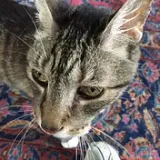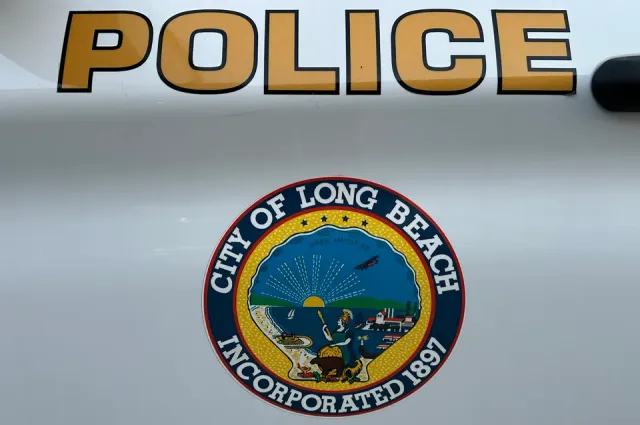Scratch This: A deep dive into the deets of 'Adopt, don’t shop'
Pets from unauthorized breeders help fill shelters and break hearts in Long Beach and everywhere.
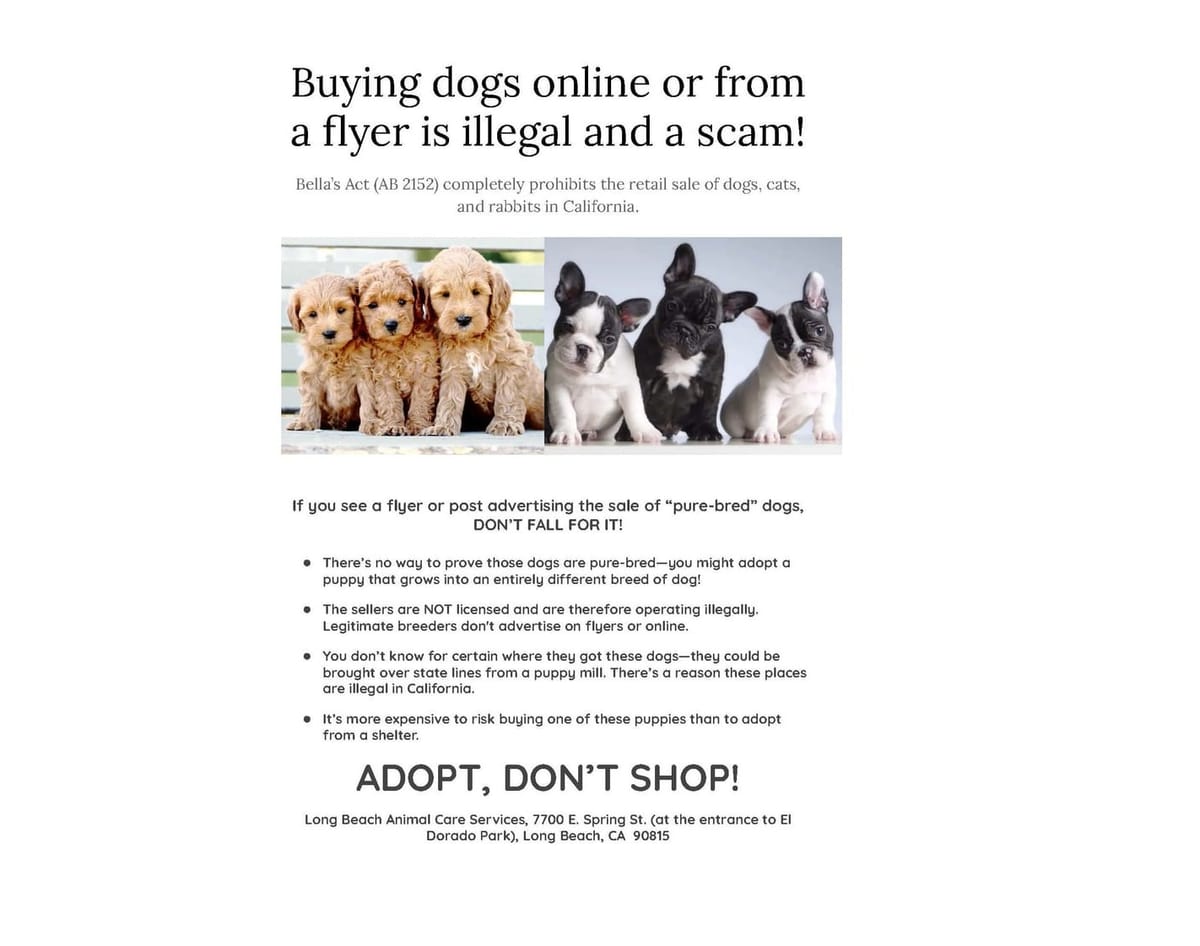
Shelters and rescues are stuffed to the stress point with animals — dogs especially. Yet people spend hundreds and thousands of dollars on dogs that are advertised as purebreds but are actually the offspring of overbred mothers in unsanitary, crammed conditions or the product of someone making a few bucks off the family dog’s litter.
Flyers with misspelled breed names, most commonly “shepard” for “shepherd” and once, a litter of “goldon doddles,” grace signposts and are handed out on streets with lots of foot traffic. To add to the problem, California officials regularly destroyed records that contain key details about the state’s underground puppy market and the veterinary records of dogs that still come across the state border, to be sold here. The records destruction stopped when a recent Los Angeles Times investigative report exposed the practice.
Judie Mancuso is the founder, CEO and president of Social Compassion in Legislation, a political advocacy organization founded to promote legislation that saves and protects animals in California. SCIL has tirelessly work on laws that cover everything from being allowed to dine out with your doggie on restaurant patios to banning octopus farming.
Mandatory spay/neuter and the puppy mill and breeding industries (pets as an industry? Mancuso has a problem with that, too) loom large in the organization’s efforts. Her recently published book, “Because They Need Us,” documents decades of battles with corporations, special-interest groups and political entities to legalize humane practices and protection. The chapter titled “The Real Cost of That Doggie in the Window” details the horrors of dogs bred in quantity in puppy mills — filthy living quarters, overbred mothers, accidents and fires in vehicles transporting the dogs over state lines, and dumping dogs considered “imperfect” or weren’t sold.
“I knew we needed to stop the steady flow of mill-bred animals through pet stores,” Mancuso wrote. “Because while our shelters were euthanizing all those healthy, adoptable dogs, cats and rabbits every year, pet stores were continuously filling their cages with animals purchased from high-volume mills, mostly in the Midwest.”
After a focused effort led by Judy Crumpton, a Long Beach animal advocate and my former writing partner, SCIL fulfilled that objective. Mancuso approached former Long Beach councilmember Patrick O’Donnell’s after his election to the state assembly about authoring legislation that would prohibit the sale of cats, dogs and rabbits in pet stores. AB 485, the Pet Rescue and Adoption Act, authored by O’Donnell, coauthored by fellow assemblymember Matt Dababneh, and sponsored by SCIL, passed in 2017. The landmark bill bans the sale of dogs, cats and rabbits sourced from high-volume, commercial breeding facilities in all pet shops throughout the state. The pets may be adopted in pet-supply stores if they come from shelters and rescues, for instance, Paw Shoppe on Spring Street has successfully adopted out cats and rabbits from LBACS.
Although AB 485 took a healthy nip out of the sale of sick puppies as product, the animals are still produced and sold by individual unlicensed, unregistered breeders and in-state puppy mills. You’ll pay through the snout for a dog that may turn out to be ill and possibly die. A glance online yielded German shepherds, bichons frises, bulldogs, cani corsi and French bulldogs for around $3,000.
“The Pet Rescue and Adoption Act kicked puppy mills out of pet shops, making a substantial dent in mill bred dogs, cats and rabbit sales in California,” Mancuso said. “However, other distribution channels still exist, such as internet sales and social media, ads in newspapers, and other advertisements throughout communities, as well as fake rescues.”
Mancuso wrote in her book that the public’s desire for designer dogs and popular breeds fuels the breeding business. In former years, Taco Bell ads popularized Chihuahuas and the Disney film set off sales of Dalmatians whose prices would have turned Cruella de Vil green with envy. Today, it’s huskies (“Game of Thrones”), Malinois (the film “Dog” and their use as K9 officers) and golden doodles (because they’re adorable). And of course, the ubiquitous French bulldogs (they’re cute, too, and Lady Gaga ha a couple).
Dogs with genetic defects and diseases like parvo, which is often fatal without expensive treatment, are dumped and abandoned. With any luck, they wind up at a shelter that mobilizes resources to save them. The generally overworked staff does its best to heal the dog or else ship them off to a clinic or rescue that has resources. This has its limits, too — some pets are too ill and have to be euthanized.
“Horror stories go on and on for mainly purebreds,” said Louise Montgomery, a volunteer at Sparky and the Gang Animal Rescue and The Fix Project’s Parvo ICU Animal Hospital. “The pup didn’t sell by 3 or 4 months old, and then, they are dumped, usually with no vaccines, often sick with parvo or exposed to diseases at overcrowded shelters. Sherri [Stankewitz, the clinic and rescue’s founder] is a shadow of herself due to grief of having to turn animals down, as we simply can’t take them all in. I don’t know how she endures. Rescue fatigue is prevalent — we are working our butts off with events, social media, getting back to applicants within hours.
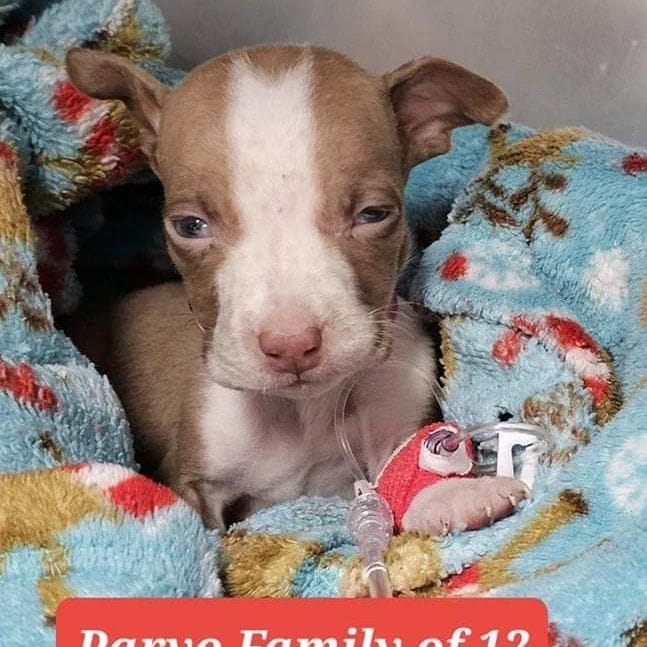
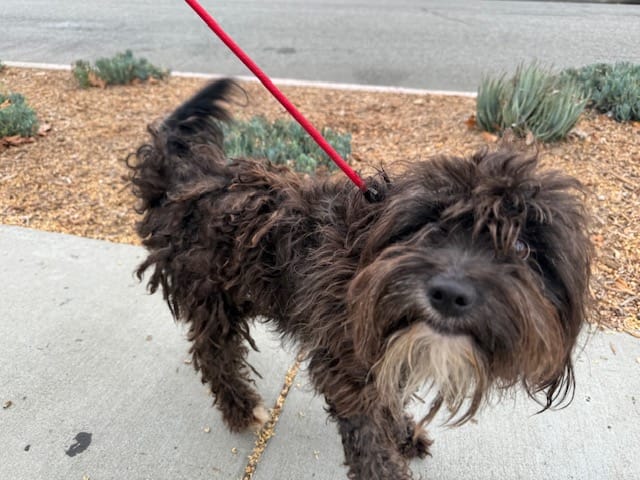
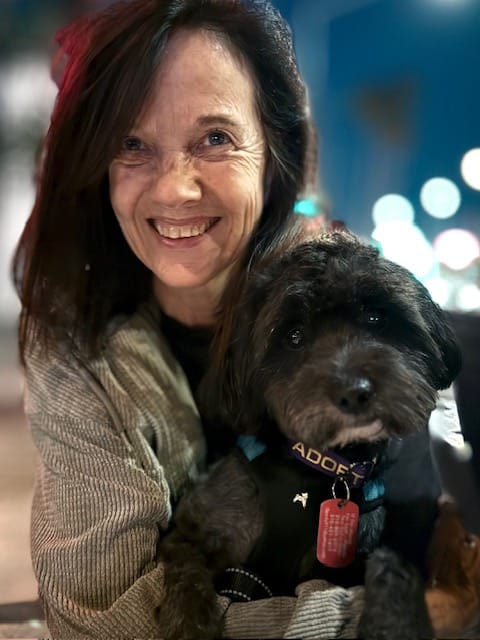
Is it backyard breeders, society or the agencies meant to govern animal rights that are letting animals down, Montgomery wondered.
“All the battles we fought and won related to mandatory spay/neuter — no breeding and applying to breed responsibly — seem to have been for naught,” she said. No one is enforcing the basic code of altering at 4 months to reduce pet overpopulation Why, when these flyers are public, showing phone numbers and all, are we not enforcing breeding codes and fines? Complaining about breeders is falling on deaf ears and the number of animals of euthanized is obscene.”
But Dr. Melanie Wagner, LBACS’ shelter manager, does hear this and is concerned. The shelter takes in abandoned “purebred” dogs all the time.
“We’ve had eight husky puppies, Lab puppies, a 4-month-old Aussie shepherds. pugs, Yorkies, Frenchies,” she said. “We get a lot of dogs that are sick, especially the Frenchies — genetic conditions like bad hearts, bad breathing, bad tracheas. Sherri gets them. Illegal breeding is an issue — there’s no doubt about it.”
The police won’t respond to animal-related calls because they’re under the jurisdiction of LBACS. However, a call to the shelter, especially after business hours, may not yield success. The call options are limited to two priorities, the first being a human in danger and the second being an animal in danger, including injured wildlife. Live animals sold in public could be considered to be in danger and they’re definitely in violation of the municipal code that prohibits selling animals on the street. But as with the details of the LA Times investigation, there aren’t enough personnel and officials to enforce the laws, and the flyers present another devilish detail.
“If it’s in a different city, it’s out of our jurisdiction,” Wagner said. “The community can help by reporting it, though. The municipal code says that no one is allowed to breed in the city —breeding will be assumed via offspring, whether intentional or because of improper confinement. If you see someone selling on the street and officers can get there in time, they will. But [people and dogs might be gone before the officers get there.”
LBACS has limited resources, Wagner said; furthermore, the shelter services three other cities: Signal Hill, Los Alamitos and Cerritos. Only one animal control officer is on duty after business hours, and if there’s a priority call, they’ll respond to that instead.
“Our enforcement power is to issue citations, so if someone continues to offend, the citation fee will go up,” Wagner said. “They’re ticketed for unfixed animals — we currently have no open breeding licenses. [If fines accumulate] or are outstanding for a long time, we can take the information to a prosecutor. However we may want to crack down on it, we don’t confiscate puppies — we can’t just take someone’s property away unless the puppies are abused or sick or lying in excrement.”
Wagner has some ideas about dealing with illegal breeding and dog sales.
“I’ve been speaking with our lieutenants and our operations supervisor about forming a task force that can help curb breeding through providing resources, education, issuing citations, and having visibility through our city,” she said. “We’re also currently reviewing our phone script, so in the near future, people will have more direction about what to do.”
Wagner is in touch with city government to work out spreading the word about illegal breeding and sales of pets.
Meanwhile, anyone wanting a specific breed of animal can visit Long Beach Animal Care Services because, as Wagner said, they have them there. Search functions on rescue and shelter aggregates like petfinder.com and adoptapet.com will also bring up find all breeds and non-breeds in their results. Cats, rabbits and pocket pets, too.
Take the cue from former Los Angeles city councilman and forever animal advocate Paul Koretz, as quoted in “Because They Need Us”: “By being customers, we perpetuate the problem.”
If people are passing out flyers or are selling the dogs on the street, get as much information as you safely can and report it to the city at 562-570-7387 or email, with any attachments or photos, to Animalcontrol.dispatch@longbeach.gov.
This article was updated to correct a reference.
YOURS DROOLY
“Families were being lured into buying puppies that were ‘certified’ when they could have been adopting healthy and happy shelter animals,” Judie Mancuso wrote in “Because They Need Us.” She was referring to the dogs people were duped into paying hundreds and thousands of dollars for in pet stores. AB485 took a couple of bites out of the market for sick pets, but there’s still the internet and the local irresponsible breeders. Many of those pets wind up in shelters. Be an adopter, not a customer, and give one (or more) of these pets from our shelter a good home, or foster one for a while. Maybe you’ll decide to make it permanent. No pressure or obligations (heh).
Email PetAdopt@longbeach.gov or petfoster@longbeach.gov, or call 562- 570-4925 to adopt or foster any pet. Long Beach Animal Care Services is located at 7700 E. Spring St. at the entrance to El Dorado Park (no parking fee for shelter visitors. Hours are Wednesday through Friday from 10 a.m. to 5:30 p.m. and Saturday and Sunday from 10 a.m. to 4 p.m.
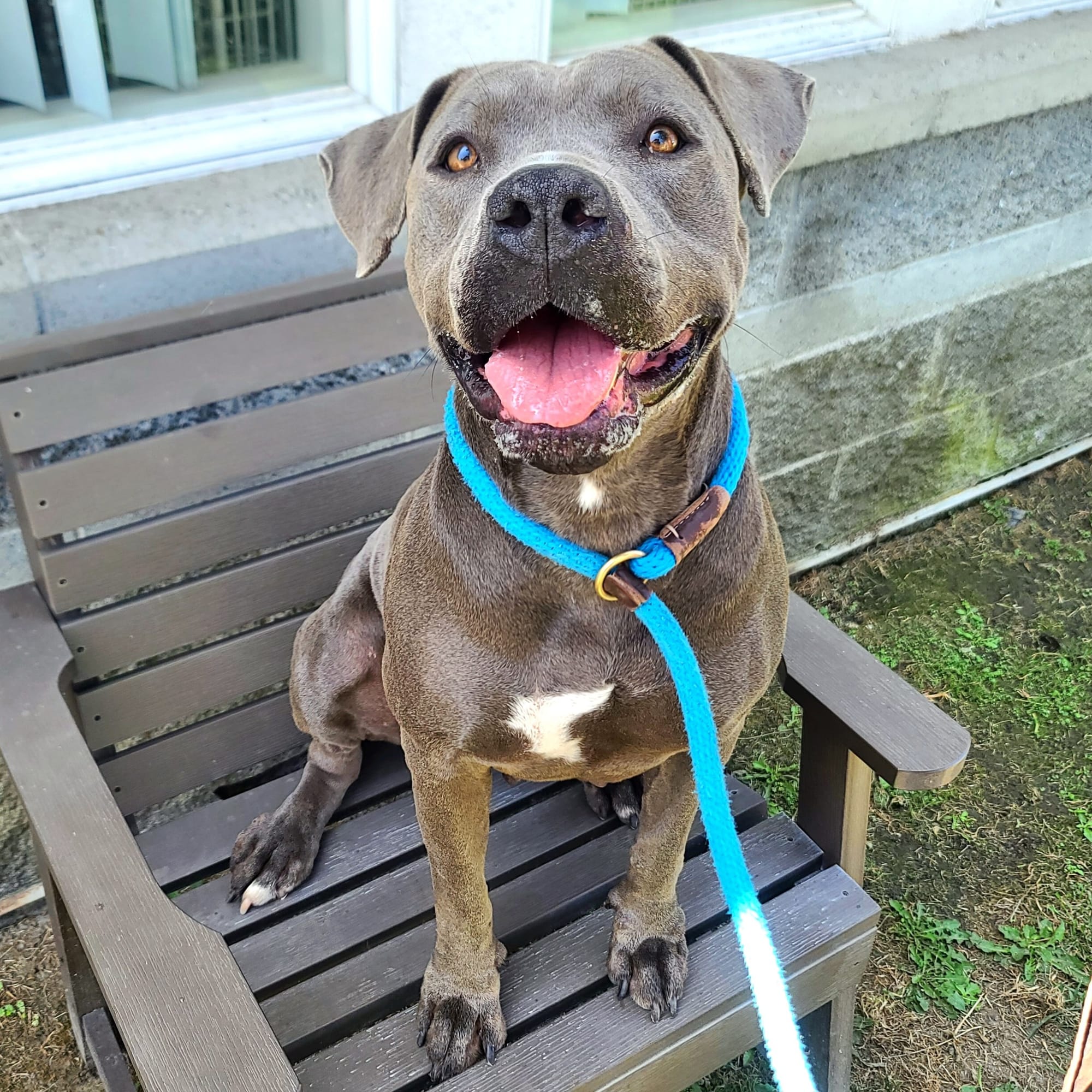
Meadow (ID#A719513) was abandoned at DeForest Park in April and brought to our shelter by animal control officers. She had likely given birth, with her lactating mammary glands. She was also emaciated and had trouble walking, which brought up concern about the health of her puppies, wherever they were. Today, she’s a healthy, well-fed 6-year-old who loves her walkies and our volunteers. She’d like nothing more than a home where she’ll be safe forever.
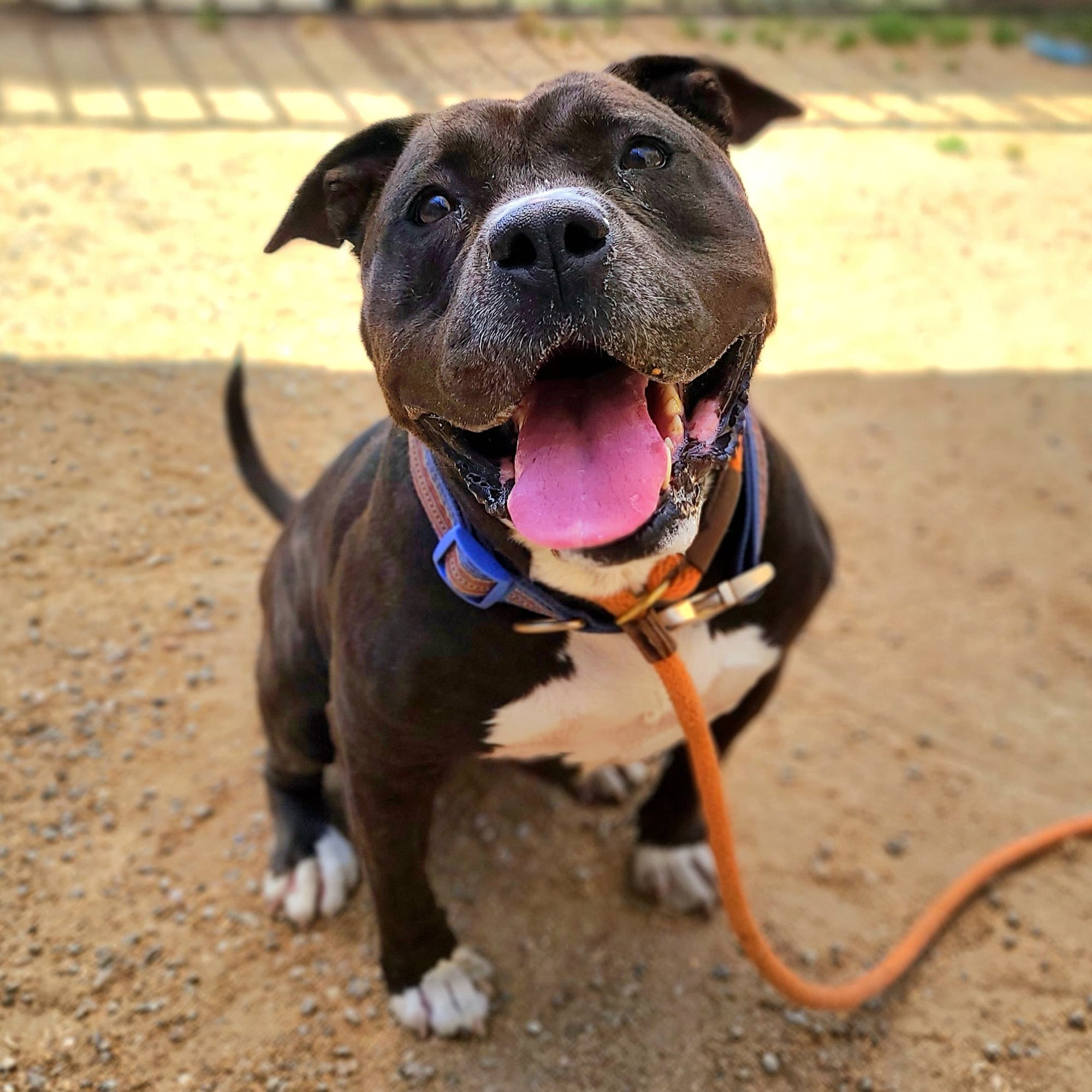
Meet Sage (ID#A720473) the mighty lizard hunter! Sage is a 4-year-old pit bull girl found on the street in May. Sage loves to worry a squeaky toy until it loses its voice and gently take treats, but her primo characteristic is stomping on the ground to scare lizards out of the bushes! She’s in foster now, but she’d sure love to make it a permanent thing. Want a personality-packed pup? Sage is your girl!
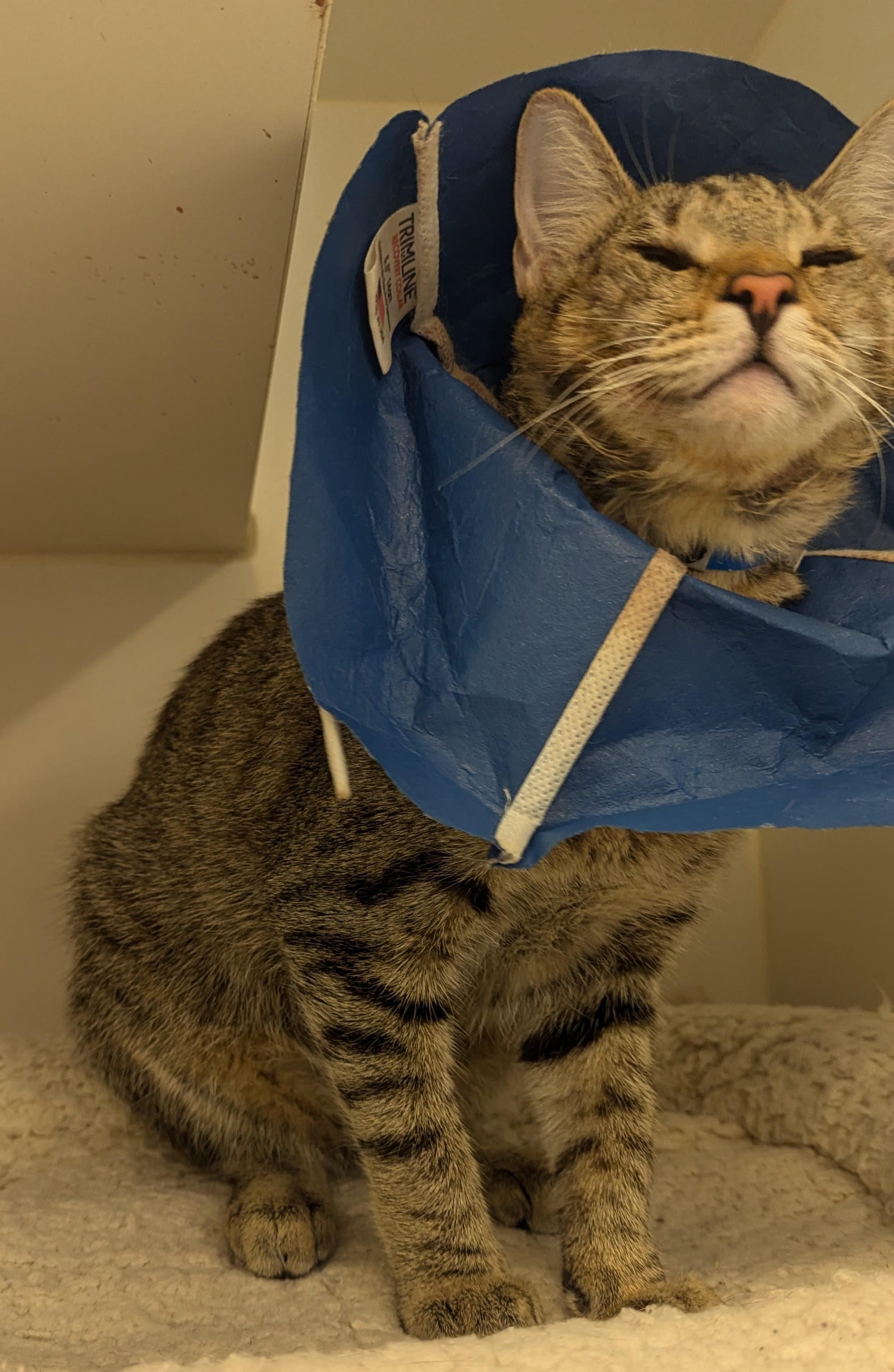
You can’t have too much sagacity in your life, and so we present Sage the cat (ID# ID#A720473)! Sage is 2 years old and loves company. He enjoys snuggling, scritches under the chin, and treats, of course! Sage is wearing a soft cone to stop him from scratching the rash he came to the shelter with and rubbing off the medicine that’s taking care of it. He also has an eye condition known as entropion — his eyelids turn inward and prevent him from opening his eyes. Sage will have surgery soon so he can open those beautiful eyes to see us and the world around him clearly.
TAIL-WAGGIN' AND NOSE-BOOPIN' EVENTS
Cool Cat Collective’s Locals-Only Art Show
Long Beach’s hep-cat gallery and kitty hang has a unique way to find homes for shelter and rescue cats! Visit any Long Beach or Orange County shelter or rescue, or go on their website, for a photo of a cat. Then, create a 2-D rendition of the lucky critter, take a photo of it, and send it as an attachment to info@coolcatcollective.co (not a misprint — it’s not “.com”!). Include the cat’s name, age, the location of the shelter or rescue, and the name and contact information of the artist.
Deadline for submission is Nov. 16 or until wall space is filled. Artists will be invited to an art launch party, and their work will be featured in the shop and online. This show is open to anyone of any age who can manipulate art supplies and not bat them off the table. The proceeds from each artwork sale will be donated to the rescue organization where the featured cat is located.
The art show opens Nov. 22. Cool Cat Collective is located at 2741 E. 4th St., C, Long Beach. Hours are Weds.–Sun., 10 p.m.–5 p.m.
Cats and Mats Yoga
Do downward-facing dog and get a wet nose right in your face as a reward. Yes, nothing adds to the health benefits of a yoga stretch session than having cats walk all over and under you. Arrive 10 minutes early, wear loose-fitting clothing, and bring a mat. You’ll have time before and after the session to hug the cats!
Feline Good Social Club is located at 301 Atlantic Ave., Long Beach. Cats and Mats Yoga takes place Monday, Nov. 18, 6 p.m.–7 p.m. Sessions are $19.99; reserve a space here.
Helen Sanders CatPAWS is presenting a fête that will lead in beautifully to the festive winter-season holidays. Le Chic Chat Soirée will begin with hosted cocktails and continue with auction items, trapping demonstrations, a chops-licking buffet dinner with vegan options, a tour of the CatPAWS mobile spay/neuter clinic and — special guest Hannah Shaw, the Kitten Lady! Meee-yow! Plus, you’ll meet some of the lucky little recipients of CatPAWS’ spay/neuter efforts, medical attention and plain old love!
Le Chic Chat Soirée takes place Saturday, Nov. 23, 5 p.m. at the Navy Golf Course Ballroom, 5660 Orangewood Ave., Cypress. Tickets $150 until Nov. 15; $175 after. Purchase tickets here.
Need a low-cost veterinarian, information about trapping community cats, places to volunteer — anything pet related? Follow this link for resources. Please add your own ideas in the Comments section.
We need your support.
Subcribe to the Watchdog today.
The Long Beach Watchdog is owned by journalists, and paid for by readers like you. If independent, local reporting like the story you just read is important to you, support our work by becoming a subscriber.

